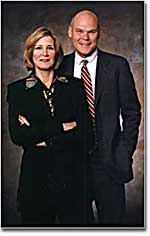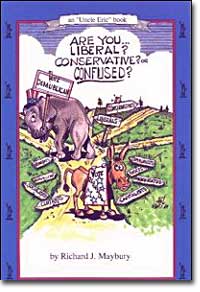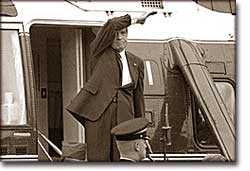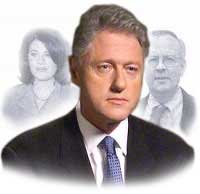
4. American Political Attitudes and Participation

The political views of Washington power-couple Mary Matalin and James Carville are on either side of the political spectrum. During the 1992 election, Carville worked for the Clinton campaign while Matalin worked for the Bush campaign.
Democracy, liberty, equality, and justice. These values are not very controversial. But Americans have vastly divergent viewpoints on the meanings of these core values. Does assisting the poor represent a movement toward equality, or does it create an unfair burden on the middle and upper classes? Does the permission of abortion defend the liberty of American women or endorse the ending of a human life? Do elected officials really represent the people, or are they just out for themselves? These issues and many more reflect a wide range of political attitudes that shape how Americans participate in government and politics.
Are You Liberal or Conservative?

Political labeling becomes confusing as lines between liberalism and conservatism become blurred. Some people don't believe they fit entirely into either category.
The terms "liberal" and "conservative" mean different things to different people, but they broadly describe contrasting political ideologies — views of the world that reflect an individual's values and ideas. Generally, a liberal ideology favors the use of government power to regulate the economy and bring about justice and equality of opportunity. For example, liberals believe that the government should do more to help minorities, the homeless, women, the elderly, and society's "have-nots." They also believe that the government should provide foreign aid to countries in need. Liberals generally favor a tax system that taxes the rich more heavily than it does the poor.
Conservatives also believe in justice and equality of opportunity. However, conservatives believe that individuals are primarily accountable for their own well being, and that government's responsibility is to see that they have the freedom to pursue their dreams. Any government support should come from the local and state levels, or preferably, from families and private charities. To a conservative, big government infringes on individual rights.
Scandals and Voter Apathy

Most trace the public's current skepticism towards government back to the Watergate scandal that rocked America in the early 1970s. Here, former President Richard Nixon waves farewell as he boards his helicopter on the day of his resignation in 1974.
Since the mid-1960s, Americans have become increasingly frustrated with their government? The current trend toward negativism can be traced to the disillusionment engendered by the government's handling of the Vietnam War and the Watergate scandal. President Lyndon Johnson was accused of lying to the public about the progress of the war, and President Richard Nixon was caught in a web of deception and cover up of the 1972 break in of the Democratic Party's campaign office in the Watergate building. President Ronald Reagan's administration was tainted by the Iran-Contra Scandal, and President Bill Clinton was impeached for obstructing evidence in a civil suit brought against him.
But earlier Presidents have made mistakes. Why do these events seem to have such long-lasting effects? Some observers believe that the growing political influence of the media is largely responsible for public skepticism about government and politics. For example, the complete 1974 Watergate hearings were broadcast on television. Millions of Americans followed the proceedings and anticipated the answers to important questions. "Were top aides in the White House a part of the deception?" "How much did he [Nixon] know?" "Is he lying to us?" Public opinion so overwhelmingly condemned Nixon that he was forced to resign.
Others blame investigative reporting because it emphasizes sensational, high interest stories. Continuing scandals, such the 1998-99 Monica Lewinsky scandal and investigation of the personal behavior of President Bill Clinton, keep the public focused on negative aspects of politics. According to this view, the media almost never reports anything good that politicians do, so they feed and extend the influence of negativism.

The media is often accused of stoking the flames of discontent among American voters. Critics say the media's emphasis on scandal over substance discourages citizens from becoming involved in the political process.
Others believe that we expect too much of government. With the dramatic increase of government responsibilities since the New Deal era, how can politicians live up such high expectations? Others contend that voter indifference is on the rise because times are good. If Americans are content with the progress of their economy, why should they bother with following every political issue?
Although Americans share some broad agreements on basic political values, such as liberty, equality, and justice, they reflect a wide range of political attitudes, from highly conservative ideologies to very liberal ones. Despite their differences, modern Americans share one other political view — they are highly critical of politicians, and they have high expectations for their government and their elected leaders.






